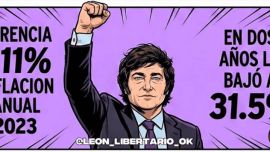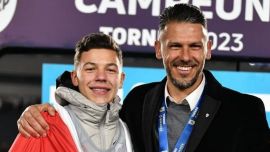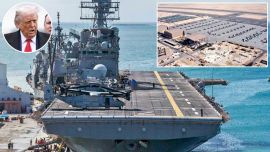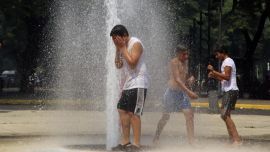Amid all the hype, publicity and, occasionally, grim apocalyptic undertones afforded to each Superclásico, it is easy to sometimes forget that under it all is a simple football match. A football match that, as Sunday’s Superliga clash between River Plate and Boca Juniors eloquently demonstrated, like all derbies more often that not fails to live up to expectations.
Fans hoping for a repeat of that enthralling double-header played in the Copa Libertadores final at the end of 2018 were to be disappointed. In a match where neither team were prepared to accept defeat ahead of bigger encounters to come, River and Boca played out a soporific 0-0 draw almost devoid of emotions, with the only real eye-catching moments coming with the release of black balloons and grim ‘rest in peace’ messages from the home crowd to remind their arch-rivals that December 9’s game in Madrid was literally a matter of life and death.
A lot has changed since that fateful day, of course. Guillermo Barros Schelotto stepped down into self-imposed exile in Los Angeles, leaving the path clear for a coach of rather different ilk.
Pragmatic to the bone, Gustavo Alfaro was never likely to get carried away by the occasion in his first official Superclásico and planned the 90 minutes as if he were still at the helm of Arsenal de Sarandí or Huracán heading to a tricky away clash.
Hampered no doubt by a raft of key absences in attack – Mauro Zárate, Ramón Ábila and Eduardo Salvio were all on the injured list for Sunday – Alfaro played safety-first throughout, packing the midfield with tough tacklers like fellow Superclásico debutant Daniele De Rossi. Jan Hurtado cut the most solitary figures up front as Boca’s sole striker, having surprisingly won the nod over Carlos Tevez due to the Venezuelan’s speed on the counter-attack. It was uninspiring stuff from the visitors, but effective: River had few clear chances on goal despite dominating possession while Boca could even have taken all three points with a brief offensive flurry in the second half.
“It was a very intense derby, as I thought it would be. We knew we are going through a building phase against an opponent who is brimming with confidence,” Alfaro told reporters at the final whistle when questioned over his rather conservative approach. “For us the game we played was very important, it was a way of gauging ourselves ahead of the Copa semis.”
What conclusions, then, if any, can be gleaned from what was on show on Sunday ahead of the two Libertadores clashes on October 1 and 22? There is no doubt that River, for all their inconsistency in front of goal at times, are a well-oiled machine that can turn any game into a procession. When putting together his game-plan Alfaro surely had in mind the example of Racing Club just two weeks previously: the reigning Superliga champions attempted to play River at their own game and came away with their tail between their legs after a 6-1 demolition in front of their own fans.
Boca have shown throughout 2019 that they have a formidable backline but are still yet to click on a regular basis while on the offensive. In that sense Alfaro is right to emphasise the former, especially in a game with so much at stake and with several crucial players unavailable. The coach will know, though, that a similar strategy in the Copa Libertadores, where every goal has the potential to decide an entire tie could prove disastrous. Just under a month lies between now and the first leg; whether that will be enough to settle the Xeneize’s uncertainties remains to be see.



















Comments